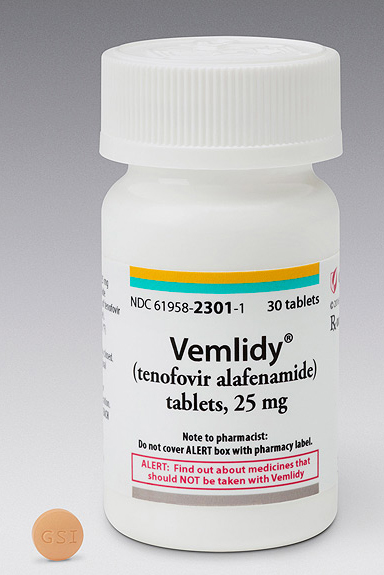Gilead, which developed new drug Vemlidy (ingredient: tenofovir ala fenamide, TAF) for chronic hepatitis B, has set about to secure additional clinical evidence to make patients switch to it and enlarge its domestic market share.

The Ministry of Food and Drug Safety recently approved the company’s plan to conduct a phase-2 clinical trial on Vemlidy’s safety and efficacy for chronic hepatitis B patients changing their medication to Vemlidy from other oral anti-virus (OAV) drugs besides Viread, the former version of Vemlidy.
The new test will be a phase-2 public clinical trial to verify if it will be safe and effective for virologically suppressed chronic hepatitis B patients with kidney or liver hypofunction to switch their therapy from tenofovir disoproxil fumarate (TDF) or other OAV to TAF.
Earlier in May, Gilead was granted to carry out a phase-3 clinical trial on switching to 25mg of Vemlidy from 300mg of Viread (ingredient: tenofovir disoproxil fumarate, TDF).
Seeking another clinical evidence for the safety of switching to Vemlidy from other chronic hepatitis B therapies is Gilead’s strategy to enlarge its Korean market share, observers said.
Vemlidy, which comes in one-tenth doses of Viread, lowers kidney toxicity and bone-related side effects. The new drug will come out on the market next month with an insured price of 3,754 won ($3.3) per tablet.
Despite Gilead’s strategy to encourage patients to switch from Viread to Vemlidy, some experts in the pharmaceutical industry are still skeptical whether such scheme will work.
The authorities’ decision over the insurance payment of Vemlidy came out too late, and patients who do not suffer kidney toxicity or bone-related side effects will have little reason to change their medication due to lack of clinical evidence, they said.

